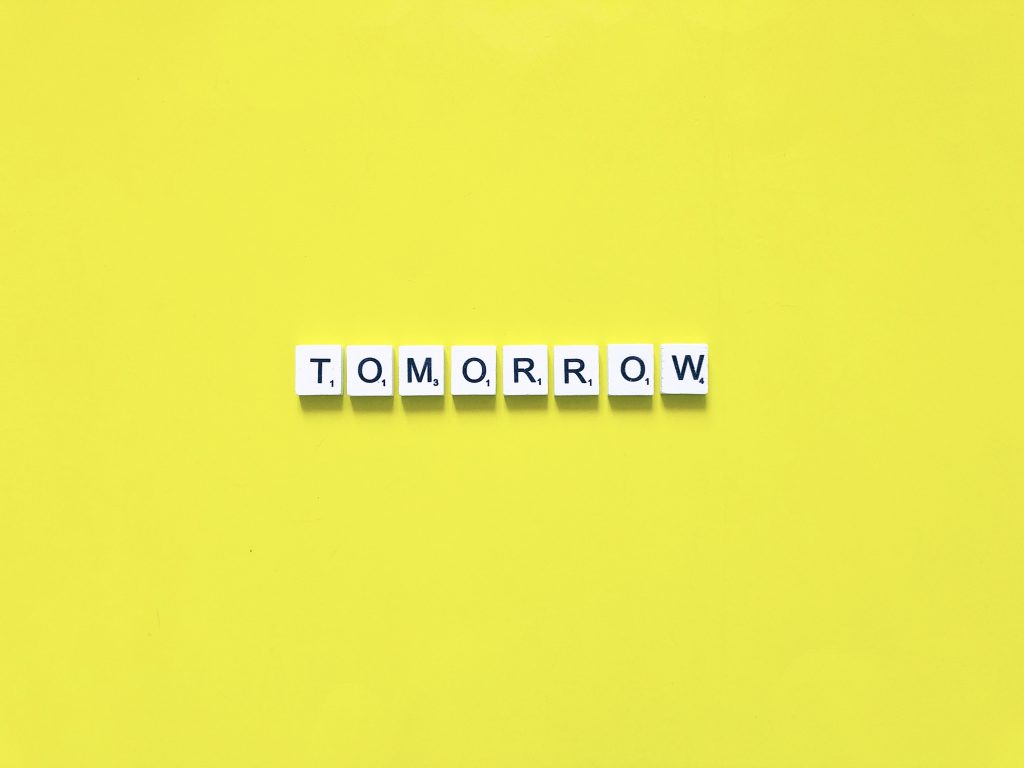The Cost of Reactive Days
It’s almost 5 PM and you haven’t accomplished everything you set out to do for the day. You rush to gather your items so you can get on the road and beat traffic. The drive home isn’t relaxing—it’s full of negative self-talk. You’re already setting yourself up for a less than pleasant evening. You don’t sleep well; your long to-do list from today and the new items that come with tomorrow keep you tossing and turning.
Has this ever happened to you? Of course it has. It’s not because you did nothing all day or aren’t productive. It’s because you’re missing a crucial step: end of day planning. You had no control over your day—you were at its mercy and that of every distraction, notification, and fire that came your way.
In a society where productivity is king, slowing down feels like failure. When you start your day already behind—carrying regret from yesterday’s unfinished tasks—you’ve set yourself up for disappointment before you even begin. Your inner critic gets busy: “I’m always running late,” “I never get enough done,” “I should have finished that yesterday.” You start apologizing for things that don’t require apologies and dismissing what you actually accomplished because it wasn’t everything on your impossible list. This negative soundtrack follows you all day, coloring every interaction and decision.
Working in a reactive manner keeps you out of the driver’s seat and keeps you feeling full of dread, regrets, and shame. Yes, there will be days where a true emergency does and should derail your entire day, but there are rarely true emergencies.

The Power of End-of-Day Planning
In “Rise and Shine,” we talked about the importance of a morning routine and how it can shape your day. Ending your day with a plan is equally as important. It’s not just about the end of your work day or school day. It’s about your routine before bed. All of it influences Tomorrow You.
It takes practice and is easy to choose to let the end of your day just happen and go with it. The problem is, you’ve had no control over the start or end of your day. It’s true that our circle of control is very small—you only have control over your thoughts, emotions, and actions. When you think about it, that means pretty much everything you encounter the moment you step out of your front door…or log on—is outside of your circle of control. So what do we do with that information? Get discouraged? No! We plan.
You might be tempted to rush to squeeze one more task in, send a few more emails. But don’t work all the way up to the end of your day. Rushing is never best. The end of your day should be when you plan. The last 30 minutes to an hour of your day should be preparing for the next day.
Research shows that daily planning can improve employee performance by 10-21% when done consistently and thoughtfully. Tomorrow You deserves that investment.
Making It Non-Negotiable
This only works if you make it non-negotiable. Block this time on your calendar—maybe call it “Day Wrap” or “Tomorrow Prep” (choose whatever works for your workplace culture). Since tools like Gmail and Outlook already use “Focus Time” for their built-in features, pick something that’s uniquely yours. If your organization uses tools that show your availability status, adjust your working hours to protect this time. Instead of showing available until 5:00 PM, make it 4:30 PM and use that buffer for tomorrow’s success.
Consistency is everything here. Your brain needs to know this is routine, not optional. When colleagues see you’re consistently unavailable during this window, they learn to respect it. No “quick questions” at 4:45 PM, no “one more thing” requests when you’re trying to wrap up thoughtfully. (Tip: If someone questions your unavailable time, simply say ‘I’ve blocked this for planning—can we connect first thing tomorrow?’)

Blueprint for Your Wrap-Up Routine
Review what you’ve accomplished—take a minute to pat yourself on the back before you look at what you need to do tomorrow.
Tidy your workspace. It seems minor, but Tomorrow You will feel more calm entering a tidy workspace than a mess. It’ll save you having to touch everything again to figure out where you’re at.
Add the tasks you need/must/hope to accomplish to your task list. IMPORTANT—organize what you need to do by priority and difficulty. If it’ll take less than 2 minutes (thanks to David Allen’s “Getting Things Done”), just do it. It’s okay to add it to the list first—it sounds silly, but it will still be cathartic to mark it off.
Don’t save the tasks that are 1) the scariest, 2) dependent on skills, people or organizations outside your circle of influence, or 3) requiring focus and deep thinking—for the end of the day. I know I say this often, but time is our only resource. No one benefits when you put off the inevitable. I can share a secret: 99.99% of the time, waiting never makes it better.
Now you’ve tidied up, made a list of what’s on deck for Tomorrow You. Here’s my favorite bit of the end-of-day routine: “Leave work at work.” It’s now outside your control.

Embrace the journey to your next destination whether it’s home, picking up a kid, stopping at the grocery store, or meeting friends. This transition time matters whether you work in office or remotely. When your home is your office, creating separation between work and personal time can feel impossible. Give yourself the time to decompress from your day. Listen to a playlist that makes you happy, a podcast you love, an audiobook you’ve been eager to listen to. Whatever you do —it should be a “yum” for you.
A lot can happen between the end of your day and the beginning of your next day. Take charge where you can. A good sleep routine is a gift. We all know this, that’s why parents try their best to keep their little kiddos on one. Big kiddos like us deserve consistency too.
Pack that lunch, pick out that outfit, lay out the workout clothes if trying to get some exercise in first thing is a goal. (Tip: the act of putting the clothes out will make it that much easier for you to get moving in the morning instead of putting it off another day). If you drink coffee, set the coffee pot up.
Adults need 7-9 hours of sleep, and regularity matters as much as duration. A consistent sleep schedule improves cognitive function and emotional regulation—exactly what Tomorrow You needs to execute tomorrow’s plan effectively.

Your goal when you finally close your eyes is that you can rest easy because you have a plan. When the alarm goes off, all you have to do is…follow it.
Leave a Reply